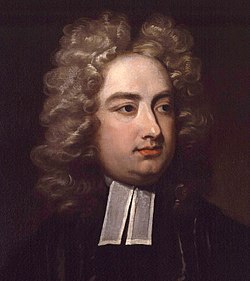Poor Monsieur his conscience preserved for a year,
Yet in one hour he lost it, 'tis known far and near;
To whom did he lose it? - A judge or a peer.[2]
Which nobody can deny.
This very same conscience was sold in a closet,
Nor for a baked loaf, or a loaf in a losset,
But a sweet sugar-plum, which you put in a posset.
Which nobody can deny.
O Monsieur, to sell it for nothing was nonsense,
For, if you would sell it, it should have been long since,
But now you have lost both your cake and your conscience.
Which nobody can deny.
So Nell of the Dairy, before she was wed,
Refused ten good guineas for her maidenhead,
Yet gave it for nothing to smooth-spoken Ned.
Which nobody can deny.
But, Monsieur, no vonder dat you vere collogue,
Since selling de contre be now all de vogue,
You be but von fool after seventeen rogue.
Which nobody can deny.
Some sell it for profit, 'tis very well known,
And some but for sitting in sight of the throne,
And other some sell what is none of their own.
Which nobody can deny.
But Philpot, and Corker, and Burrus, and Hayze,
And Rayner, and Nicholson, challenge our praise,
With six other worthies as glorious as these.
Which nobody can deny.
There's Donevan, Hart, and Archer, and Blood,
And Gibson, and Gerard, all true men and good,
All lovers of Ireland, and haters of Wood.
Which nobody can deny.
But the slaves that would sell us shall hear on't in time,
Their names shall be branded in prose and in rhyme,
We'll paint 'em in colours as black as their crime.
Which nobody can deny.
But P - - r and copper L - - h we'll excuse,
The commands of your betters you dare not refuse,
Obey was the word when you wore wooden shoes.
Which nobody can deny.
An Excellent New Song[1] Upon The Late Grand Jury
Jonathan Swift
(1)
Poem topics: poor, time, sweet, long, hear, sugar, judge, excuse, true, fool, year, black, rhyme, challenge, lost, good, conscience, I love you, I miss you, Print This Poem , Rhyme Scheme
Submit Spanish Translation
Submit German Translation
Submit French Translation
Write your comment about An Excellent New Song[1] Upon The Late Grand Jury poem by Jonathan Swift
Best Poems of Jonathan Swift
